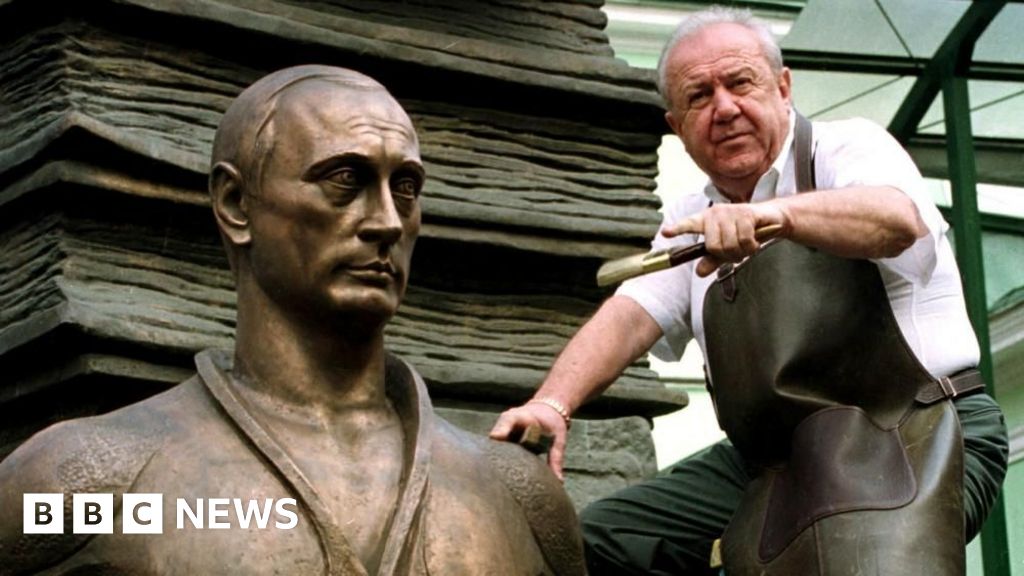

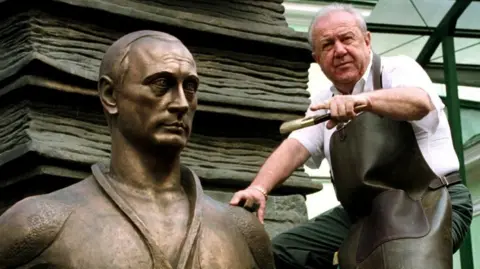 Reuters
Reuters
Tsereteli was known for his larger-than-life sculptures, including this one of Russian President Vladimir Putin
Georgian-Russian artist Zurab Tsereteli, known for his gigantic and often controversial monuments, has died aged 91.
The Tbilisi-born sculptor, painter and architect divided opinion with a series of large-scale projects in Moscow, including a massive 98m (321ft) monument to Tsar Peter the Great, who famously detested the city.
Rising to fame during the Soviet era, Tsereteli led the team of designers for Moscow’s 1980 Olympic Games, and later built large sculptures in cities across the world.
He was also known for his closeness to the Russian political elite, once saying that Vladimir Putin’s “healthy soul” had inspired him to make a bronze study of the Russian president.
Tsereteli was a close friend of Moscow’s mayor Yuri Luzhkov, and his position as part of the Soviet Union’s upper crust allowed him to travel outside of the country, where he met Pablo Picasso in Paris.
Russian Foreign Ministry spokeswoman Maria Zakharova said Tsereteli was “an artist of world renown, a public figure who knew no boundaries or obstacles in strengthening peace and supporting creativity” in a social media post after his death.
“He will live not only in our hearts, but also in his works,” she added.

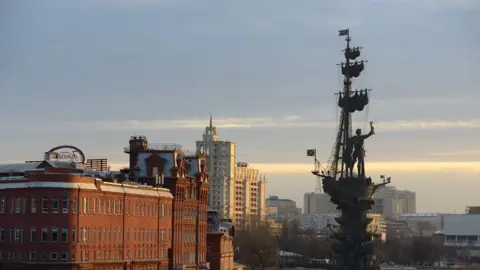 Getty Images
Getty Images
The sculptor’s Peter the Great monument towers over central Moscow
During a row over the Peter the Great monument’s future in 2010, several Moscow residents told the BBC they hated the sculpture, which at 98m is slightly taller than the Statue of Liberty.
Despite the sometimes frosty reception his works received, Tsereteli was widely respected throughout the art world, and served as the president of the Russian Academy of Arts.
His enormous constructions can be found in cities around the globe, including a monument to Christopher Columbus in Seville, Spain, and the Chronicle of Georgia monument in his hometown of Tbilisi.
They also include the ten-storey Tear of Grief monument, commemorating victims of the 11 September 2001 attacks, which stands in New Jersey. It was presented to the US by the Russian government.

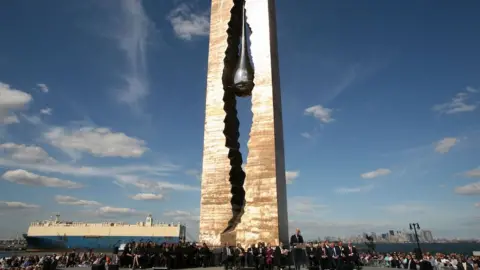 Getty Images
Getty Images
The Tear of Grief monument was dedicated in a ceremony on 11 September 2006, attended by Tsereteli and former US President Bill Clinton
Another sculpture, Good Defeats Evil, sits at the UN Headquarters in New York. It depicts St George slaying a dragon, which lies among broken fragments of US and Soviet missiles.
The work represents “the vanquishing of nuclear war through the historic treaty between the Soviet Union and the United States”, according to the UN website.
In 2006, Tsereteli caused controversy in a small French town, which erected his huge 8.75m-tall (29 ft) bronze statue of Pope John Paul II. Opponents said the statue violated France’s secularity laws.

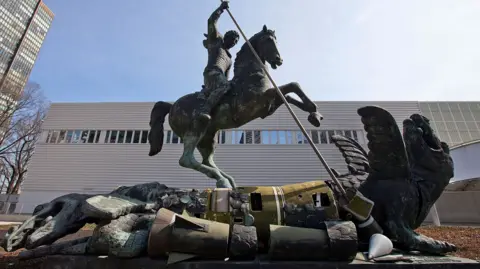 Getty Images
Getty Images
Good Defeats Evil, at the UN Headquarters, commemorates the 1987 signing of the INF nuclear war treaty
At 110m (360ft), Tsereteli’s colossal monument to Christopher Columbus’s first voyage, Birth of the New World, is one of the tallest sculptures on earth. It was eventually constructed in Puerto Rico, after several US cities rejected it.
He also made smaller bronze studies of major figures including Princess Diana and Putin.
Tsereteli was also a painter – notably of flowers – and an architect who took a key role in reconstructing Moscow’s Cathedral of Christ the Saviour.

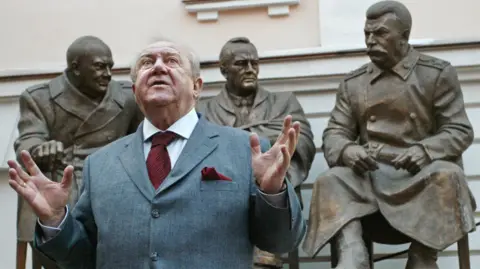 Getty Images
Getty Images
Tsereteli’s smaller works include a monument depicting allied leaders Winston Churchill, Franklin D Roosevelt and Joseph Stalin at the Yalta Conference of 1945
